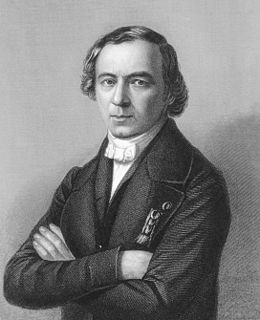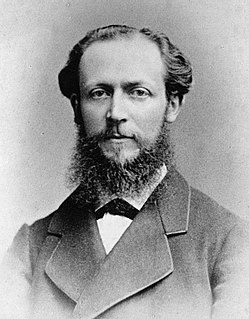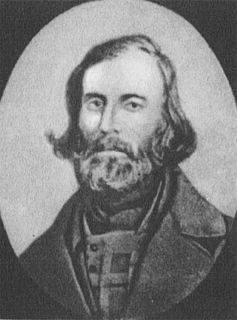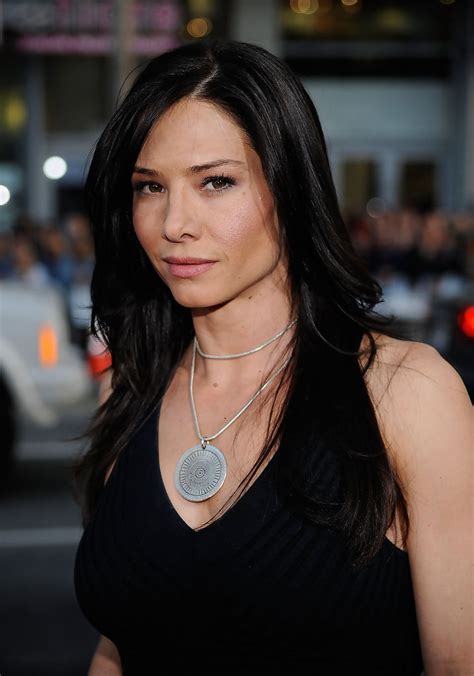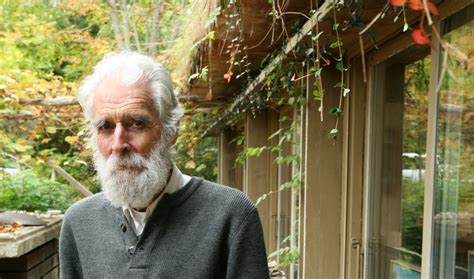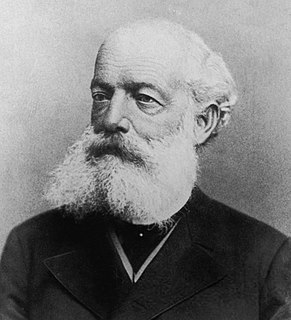A Quote by Jean-Baptiste Dumas
In organic chemistry there exist certain types which are conserved even when, in place of hydrogen, equal volumes of chlorine, of bromine, etc. are introduced.
Related Quotes
I notice that, in the lecture … which Prof. Lowry gave recently, in Paris … he brought forward certain freak formulae for tartaric acid, in which hydrogen figures as bigamist … I may say, he but follows the loose example set by certain Uesanians, especially one G. N. Lewis, a Californian thermodynamiter, who has chosen to disregard the fundamental canons of chemistry—for no obvious reason other than that of indulging in premature speculation upon electrons as the cause of valency
Widely spaced earth-sheltered towns offer sweeping views over the plains. High-speed trains link the communities. Food is grown in the region. Bikeways are everywhere. Nonpolluting hydrogen powers all vehicles. Sunlight and wind generate the hydrogen. Note the earth-covered bridges, the continuous window bands, the wind machines across the farmlands. In this new America, everything is reused, recycled, conserved.
It has been recognized that hydrogen bonds restrain protein molecules to their native configurations, and I believe that as the methods of structural chemistry are further applied to physiological problems it will be found that the significance of the hydrogen bond for physiology is greater than that of any other single structural feature.
Let me tell you, you either have chemistry or you don't, and you better have it, or it's like kissing some relative. But chemistry, listen to me, you got to be careful. Chemistry is like those perfume ads, the ones that look so interesting and mysterious but you dont even know at first what they're even selling. Or those menues without the prices. Mystery and intrigue are gonna cost you. Great looking might mean something ve-ry expensive, and I don't mean money. What I'm saying is, chemistry is a place to start, not an end point.
A garden is the place millions of people go to touch the earth, to smell flowers - to use some of that fabled human brain power in the cause of better participating with natural processes in the place they call home. It serves as an art project, an organic produce market, a spiritual practice, a pharmacy. It offers ongoing lessons in ecology, biology, chemistry, geology, meteorology. Gardening imparts an organic perspective on the passage of time. It bestows on its practitioners a genuine sense of admiration for the plants, the soil, the sun, the water.
